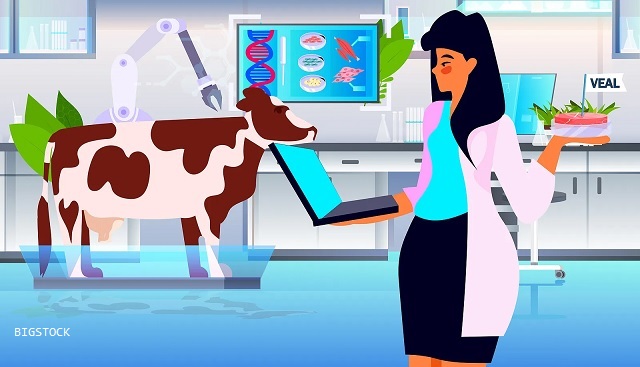Lab-grown ‘meat’ worse for environment than retail beef: Study
By MercatorNet – Navigating Modern Complexities

The lab-grown meat industry is propped up more by hopeful modelling than favourable data.
The high-tech utopia we keep hearing about will have to wait, if a recent pre-print study on laboratory-cultured meat products is to be believed.
According to researchers at the University of California, Davis, and the University of California, Holtville, “sustainable” meat alternatives have a carbon footprint that is likely “orders of magnitude” higher than retail beef based on current and near-term production methods.
Cultured meat production may be pumping out between four and 25 times more carbon dioxide per kilogram than regular beef, according to the new research, which assessed energy use and greenhouse gas emissions through all stages of production.
If the study passes peer review, its conclusion would be damning: lab-grown meat, long touted as a clean, green alternative to the traditional butcher process, could be harming the planet more than the industry it’s trying to displace.
Truly, who could have guessed that growing meat in giant steel bioreactors using highly-processed pharmaceutical products would be worse for the environment than a herd of cows chewing grass?
The researchers did not rule out the possibility that technological advances that enable a move from using pharmaceutical-grade ingredients to their food-grade equivalents could eventually tip the scales in favour of artificially grown meat.
“It’s possible we could reduce its environmental impact in the future, but it will require significant technical advancement to simultaneously increase the performance and decrease the cost of the cell culture media,” according to UCD food scientist Edward Spang.
However, the team’s findings suggest that in its current state, the lab-grown meat sector is propped up more by hopeful modelling (read: wishful thinking) than favourable present-day data.
Derrick Risner is another of the UCD food scientists who worked on the study. He wrote that their findings were important “given that investment dollars have specifically been allocated to this sector with the thesis that this product will be more environmentally friendly than beef,” adding, “my concern would just be scaling this up too quickly and doing something harmful for the environment”.
According to Science Alert, which reported on the pre-print study:
While cultured meat uses less land than herds of cattle or flocks of sheep, not to mention less water and antibiotics, environmental costs of the highly specific nutrients required to grow the product rapidly add up.
These include running laboratories to extract growth factors from animal serums, as well as growing crops for sugars and vitamins.
Then there’s the energy required to purify all of these broth ingredients to a high standard before they can be fed to the growing meat lumps. This energy-intensive, extreme level of purification is needed to prevent introducing microbes to the culture.
In their research, the California-based team also reviewed the most climate-friendly beef production systems already in operation today. They found that these outperformed even the best synthetic meat processes available.
The California researchers are not the first to have reached the conclusion that real beef is better for the planet than artificial alternatives.
A 2019 University of Oxford study published in the journal Frontiers in Sustainable Food Systems likewise found that the energy used to make cultivated meat could release more greenhouse gases than traditional farming.
Modelling traditional versus lab-grown meat options 1,000 years into the future, the team in Oxford concluded that synthetic meat would only be “climactically superior” depending on “the availability of decarbonized energy generation and the specific production systems that are realized”.
Reporting on the 2019 research, Vox summarised: “Yes, cows produce a lot of methane, and methane is very bad for global warming. Yet it only lasts in the atmosphere for a dozen years. Carbon dioxide, on the other hand, lasts more than a century. And you know what releases a lot of CO2? Labs — including those that make cultured meat.”
So while start-ups in Silicon Valley continue to pour millions of investment capital into poor substitutes with a bigger carbon footprint than Betsy, do your part for the environment and order your favourite fillet next time you dine out.
AUTHOR
Kurt Mahlburg is a writer and author, and an emerging Australian voice on culture and the Christian faith. He has a passion for both the philosophical and the personal, drawing on his background as a graduate… More by Kurt Mahlburg
EDITORS NOTE: This MercatorNet column is republished with permission. ©All rights reserved.

This article is courtesy of DrRichSwier.com, an online community of citizen journalists, academics, subject matter experts, and activists to express the principles of limited government and personal liberty to the public, to policy makers, and to political activists. Please visit DrRichSwier.com for more great content.

